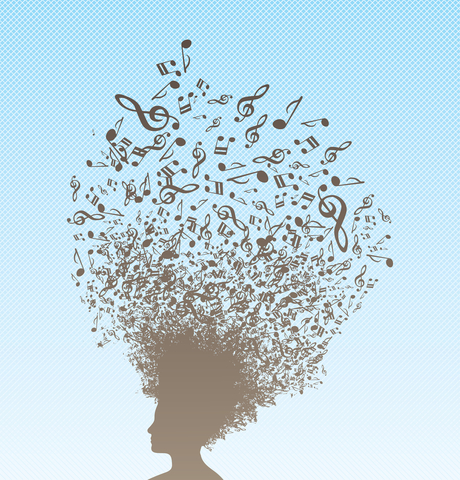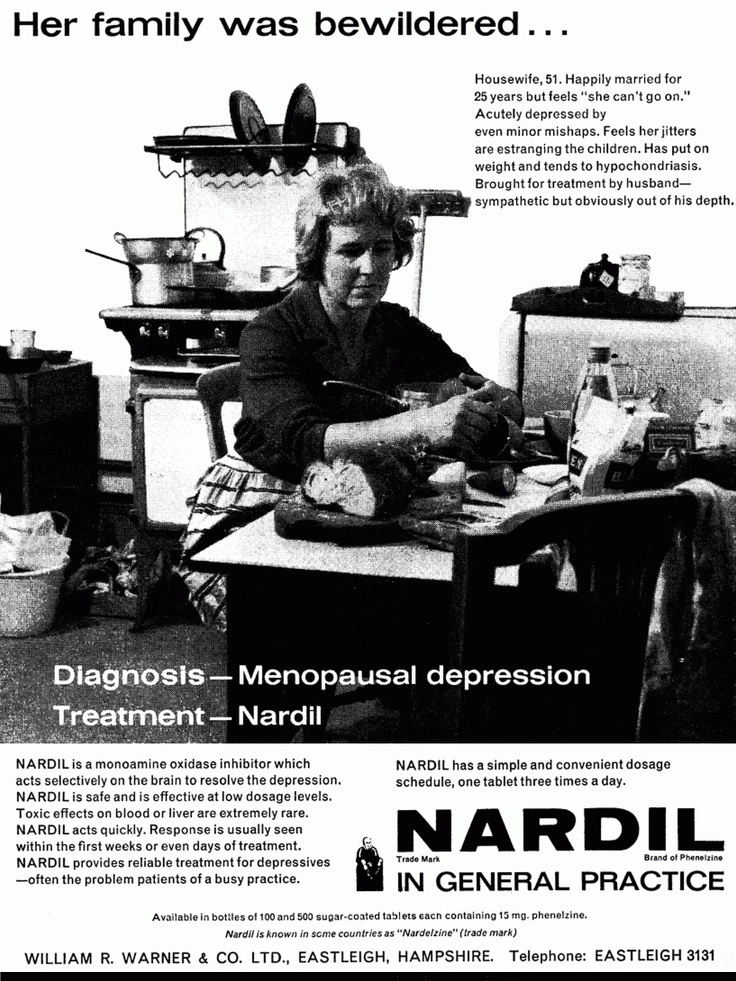If music be the cure…
of the blues, play on!
 I went back into the archives to pull up this post from two years ago and it occurred to me that music can pretty much pull me out or put me into mood. It’s pretty fascinating, isn’t it, that a few notes on a page translated by a musician’s ear and fingers can manipulate the brain. But, what about the brain on menopause?!
I went back into the archives to pull up this post from two years ago and it occurred to me that music can pretty much pull me out or put me into mood. It’s pretty fascinating, isn’t it, that a few notes on a page translated by a musician’s ear and fingers can manipulate the brain. But, what about the brain on menopause?!
It’s widely accepted that depression affects as many as 20% to 40% of women during menopause. However, what’s also true is that gender differences in depression evidently begin well before the menopause and women are 1.5 to 3 times likelier than men to report a lifetime history of depression. Moreover, these distinctions start as early as the teen years and continue until the mid 50s, a time that corresponds to female reproductivity. Still, hormones are only one factor and mood can also be affected by stress, family life, general health issues, a lack of exercise and genetics. Moreover, research has shown that how women perceive the effect of menopause and its symptoms on their physical health can significantly affect whether or not they develop depression at the start of the ‘pause.
One thing that is fascinating about depression is while drugs have long been considered first line therapy, other alternatives, such as physical activity, have been shown to alleviate depression to a certain extent or at the very least, boost the effectiveness of pharmaceuticals. Listening to music may also be beneficial.
There are several theories behind the use of music in healing. One is that the slower, homeostatic rhythm of music slows down any elevated body rhythms. Another is that music actually alters psychological responses so that health outcomes, like depressed mood, are improved.
However, is there any muscle behind the claims that music can heal? A study appearing in Complementary Therapies in Medicine in 2011 suggests it can. When researchers scoured nine databases, they identified data from 9, scientifically sound studies that enrolled participants in a wide range of ages from 18 to 95 years. And while there was no rhyme or reason the the duration of each listening session (30 to 60 min) or frequency of listening (2 to 3 times a day to once a week), nor was there a consistency between type of music listened to, 11 studies showed the listening to music improved depression and some demonstrated significant improvements, with scores improving by as much as 47% after 4 months. In some trials, improvements were seen as early as two weeks. Moreover? These improvements were measured by several different validated scales and were not based solely on participant recall.
More recently, evidence culled from multiple scientific reviews demonstrates that music therapy is clearly effective for relief of depressive symptoms, improved mental health and less anxiety. The underlying premise is that the beauty and rhythm of the music tone helped the patient to be comfortable. More importantly unlike drug therapy, no adverse effects were associated with music therapy nor were any harmful ‘phenomenon’ observed.
While the studies did not necessarily examine music type, one compared the difference between rock and classical and found positive results in mothers who had become withdrawn. Others showed that having a choice helps; here, the researchers point out that choice helps the body to adapt and adopt musical patterns because the “listener is more in-tune” with preferred music.” (Pun intended!)
Clearly, there are distinctions between the data drawn from these studies which makes it impossible to draw any firm conclusions. At the same time, there is enough evidence to support the role of music as therapy in mood disorders. For me, a dose of prevention is worth a pound of cure. And this is the type of prevention that’s just ‘music to my ears!’
If music be the cure of mood, play on.
Read MoreGuyside: Youth by association
 I spent much of Sunday afternoon at a 13th birthday party. Well, a lunch really. The 13-year-old in question isn’t my kid. She and her brother have been part of our lives, and we part of theirs, since birth.
I spent much of Sunday afternoon at a 13th birthday party. Well, a lunch really. The 13-year-old in question isn’t my kid. She and her brother have been part of our lives, and we part of theirs, since birth.
We’re still cool enough to Sophia, and to her brother Cameron, that they’ll willingly hang out with us. A steady diet of junk food and Warner Brothers cartoons during their childhoods must have given us some residual cool factor. All I know is that it’s a source of happiness to hang out with them for me, and I hope for them too.
One thing that’s interesting as I and those around me age: at any given age, you can be younger or older than your years. And one of the factors that make the difference in psychological and physical health is hanging around with younger people.
It’s easy to fall into habits, to assume a certain level of “dignity” or propriety that we think is appropriate for a man of my age. The problem with that is we may be losing our sense of fun, our sense of play.
There’s some research and some anecdotal evidence that suggests hanging out with younger people is good for us. A research study in Taiwan examined the psychological impact of taking care of grandchildren on the elderly, and discovered that those interactions have a “protective effect against depression and loneliness.” If that’s more generally true, it’s important. And a 2004 study paired older adults and emotionally disturbed teenagers. It found that the pairs bonded with each other, and that both teens and seniors experienced benefits from the relationship — the older folks benefited emotionally; the teens, behaviourally.
I know from my own life that spending time with our young friends, as well as our two youngest nephews (just starting school now), is always a boost. Spending time with people in the music industry also helps me forge relationships with many musicians who tend to be younger. Musicians also recognize the value of “playing”, which is a bonus.
And when I cycle in a group, younger people in the group push my physical comfort zone and make me go farther, faster, than I might on my own. When I count up all the interactions and the benefits, I get a lot out of spending time with people who are younger than me, whether they’re four years younger than I am, fourteen, or maybe just four. And perhaps they get something out of hanging out with me! It’s a virtuous circle.
In a couple of weeks, I’ll help celebrate the 80th birthday of a cycling friend. He’s in remarkably good shape for a man of 80. And I think that part of his youthfulness is that many of the friends who will help him celebrate are younger than he is. I’m hoping that in 33 years, the same will be true of me.
Photo: “Young punk and old unionist” CC-licenced by Flickr user Simon Oosterman.
Read MoreDepression: the silver lining
I’ve written about depression quite a bit on Flashfree. Not only is age a risk factor among women (with the highest reported levels in women between the ages of 40 and 49) but, the risk of depressive symptoms may be as much as three times higher among women across the menopausal years compared to women who have not yet reached menopause. Moreover, the risk may be more than twice as likely among women who’ve never had depression previously.
However, there is a silver lining: researchers are reporting that in some women, particularly those who experience depressive symptoms for the first time around the time of menopause, depression will eventually dissipate over the eight years following the final menstrual period. In fact, this was proven true in over 200 women whose symptoms were evaluated over a 14 year period around menopause. In this group, depression scores were significantly higher the 10 years before their final period and then decreased roughly 12% per year after their final menstrual period. For women with a history of depression, the odds were not quite as favorable; these women were 13 times likelier to develop depressive symptoms around menopause, and may be as much as 8 times likelier than other women to have recurrences of the blues in the years following the final menstrual period.
The researchers note that women who have greater variability in their levels of FSH — follicular stimulating hormone — may be more likely to develop depressive symptoms during menopause. However, the quicker that these levels change, the more likely a woman is to move past the depression as she gets further into menopause.
The old adage, ‘this too, shall pass,’ may be quite true when it comes to depression during menopause. For women whose history overrides the FSH factor, a reduction in stress, psychotherapy, low doses of SSRIs and a boost in physical activity may help to keep things in balance, especially overall wellbeing.
Read MoreBewitched, bewildered, and bemused…Nardil and the ‘pause
Regular readers of Flashfree know how amused and astonished that I am when I run across vintage menopause ads. This one is for Nardil, an agent used primarily to treat social anxiety and certain types of depression that don’t respond to other drugs, meaning that it is rarely the first antidepressant used. Ironically, while first prescribed for menopause in the Sixties, it remains part of the depression armamentarium 50 years later! Nardil has some significant side effects, including a worsening of depression and suicidal thoughts.
The housewife in the ad was brought into the doctor by her husband, ‘sympathetic but obviously out of his depth!’
Read More
Wednesday Bubble: Depressed? It may be high testosterone
As I’ve written previously, depression and hormonal imbalance go hand in hand as much as love and marriage, babies and carriages, and yin and yang. As many as 40% of women are affected by depression during menopause, but there are other factors that come into play, including gender (women are 1.5 to 3 times likelier than men to report a lifetime history of depression), stress, family life, general health issues, a lack of exercise and genetics. Moreover, research has shown that how women perceive the effect of menopause and its symptoms on their physical health can significantly affect whether or not they develop depression at the start of the ‘pause.
I’ve got one more factor to add to the mix: testosterone. Findings reported at this week’s International Federation of Fertility Societies/American Society for Reproductive Medicine meeting suggest that when it comes to depression in menopause, high testosterone levels may be at-play, at least in Caucasian women.
Among 400 women studied over 14 years (who were 35 to 47 when the study began), 76% had a history of depression. Still, researchers say that this history did not appear to affect the relationship between high testosterone levels and depression scores; in fact, Caucasian women with the highest testosterone levels were 27% more likely to have depression than women who had the lowest levels. In fact, when considered in totality, each jump to the next measure of testosterone levels (four in all) increased the risk of depression by 14%.
Importantly, the researchers did not see the same increase in depression among African-American women. Rather, African-American women with the highest testosterone levels were 26% less like to have depression.
There is no indication of the reasons why testosterone affects mood in Caucasian versus African-American women. However, it’s important that we have another piece of the puzzle. Take note: if testosterone patches ever make it to market in the U.S., women with preexisting depression may want to step back before hopping on that bandwagon.
Read MoreMood and the grape
 Drinking wine can lower the risk of developing depression? It seems counterintuitive, doesn’t it, particularly because many studies have shown a direct association between alcohol consumption and depressive symptoms. Yet, Spanish researchers are now reporting that light to moderate drinking might actually yield mood benefits.
Drinking wine can lower the risk of developing depression? It seems counterintuitive, doesn’t it, particularly because many studies have shown a direct association between alcohol consumption and depressive symptoms. Yet, Spanish researchers are now reporting that light to moderate drinking might actually yield mood benefits.
Before you head out to buy a few bottles of your favorite variety, there are a few key things that you need to know. For example, the original purpose of this study was to learn how a Mediterranean diet supplemented with extra virgin olive oil or mixed nuts might help prevent heart disease In roughly 5,000 men and women with existing risk factors. It just so happens that their alcohol intake were part of overall dietary measures. So, when the researchers went back into the data, they divided these drinkers into groups based how much they drank a day, and how often wine was part of that consumption. here’s the rub: while drinking two to seven glasses of wine a week was associated with halving the risk for developing depression, those glasses of wine translated into 5 to 15 grams at most, per day. Do the math; that’s equal to .17 to .5 ounces of wine daily. A half ounce of wine!
The reason for the protection against depression is that it is believed that depression and heart disease may share the same underlying mechanism. What’s more, wine contains certain non alcoholic components, resveratrol for example, that may protect wine drinkers from developing depression. Still, the same benefits are not seen when the amount of wine consumed daily exceeds a half ounce.
The lesson is clear: the headlines might be promising but don’t always deliver the goods. Meanwhile, I am a huge believer in the power of the grape, even if it doesn’t promise to boost my mood.
Cheers!
Read More









